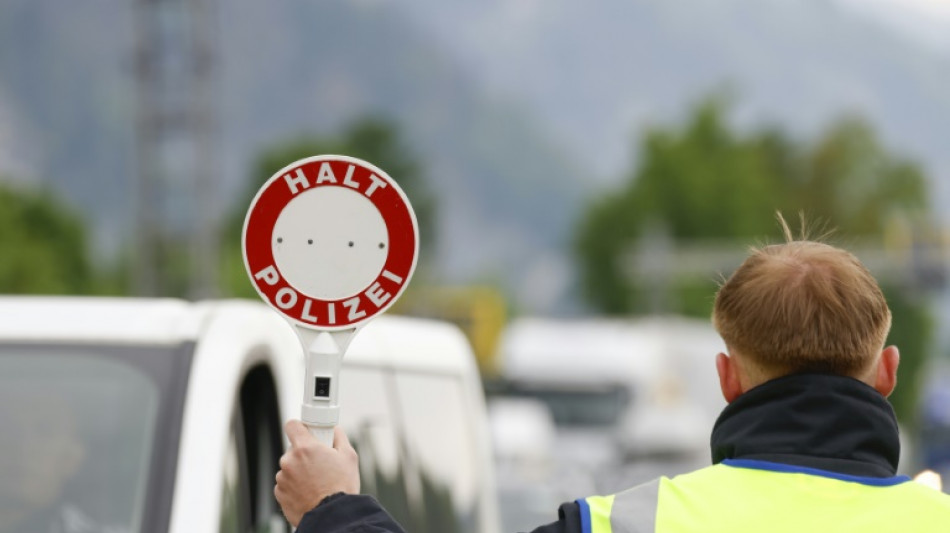

German govt defiant despite court ruling against migration crackdown
The new German government said Monday it would continue its flagship policy of turning asylum seekers away at its borders, despite a court ruling against the practice.
The policy was brought in on May 7, just a day after conservative Chancellor Friedrich Merz and his cabinet took office with a promise to crack down on irregular migration.
However, Berlin's Administrative Court ruled on Monday that people "who express the wish to seek asylum while at a border check on German territory may not be sent back" before it was determined which state was responsible for processing their claim under the EU's so-called "Dublin" system.
Despite this, Interior Minister Alexander Dobrindt said hours after the judgement that "we will continue with the pushbacks", adding that "we think we have the legal justification for this".
Monday's court decision follows an appeal made by three Somali nationals who encountered an immigration check at a train station at Frankurt an der Oder on the Polish border on May 9.
They expressed their wish to claim asylum in Germany but were sent back to Poland the same day.
The court said that their pushback was illegal and that its "findings can also be applied to other cases" of people being turned away at Germany's borders.
However, the court also ruled that "the petitioners cannot demand to be allowed into" Germany.
The process of establishing which EU state is responsible for the asylum application "can be carried out at or close to the border", the court said.
The court rejected the government's argument that the Dublin procedure could be disregarded if this is necessary to "keep public order and protect domestic security".
The government had failed "to demonstrate a danger to public security or order" that would justify such a move, the court said.
Dobrindt insisted that Monday's judgement only had a direct impact in the "individual case" of the three Somali complainants.
Under the Dublin procedure, irregular migrants should be registered in the EU country they first enter. Should they head to another nation in the bloc, they can in most cases be returned to their first port of call in the EU.
- Irritated neighbours -
The new policy of pushing back undocumented migrants at Germany's borders, including almost all asylum seekers, was quickly introduced after Merz's government took office early last month.
This was despite worries voiced by some in his coalition's junior partner, the centre-left Social Democrats (SPD), that the policy was not legally sound.
The government has also stressed that the pushbacks were temporary and that the longer-term solution has to be improved security at the EU's external borders.
According to the interior ministry, more than 2,800 people have been denied entry to Germany in the first two weeks of the new policy being applied, including 138 people who wanted to claim asylum.
A crackdown on irregular migration was a key plank of Merz's platform for February's general election.
That vote saw the far-right Alternative for Germany (AfD) score its best-ever result of just over 20 percent and Merz insists that action on migration is the only way to halt the party's growth.
The new government's pushback policy has led to some irritation among Germany's neighbours as well as fears of adverse impacts on cross-border commuters and border communities.
On Monday a foreign ministry source confirmed that the French embassy in Berlin had sent the German government a letter demanding clarity on Germany's migration policy.
As well as the pushbacks, Merz's new government is planning to suspend family reunifications for two years for immigrants who have subsidiary protection status.
It also wants to abolish a measure brought in under the previous government which enables people to apply for German citizenship after three years if they can prove they are exceptionally well-integrated into German society.
J.M.Gillet--JdB



